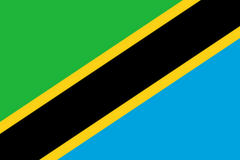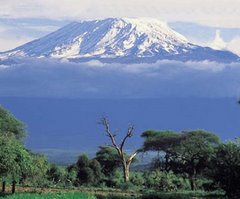By Daniel Wallis NAIROBI, March 4 (Reuters) - The involvement of Tanzanian President Jakaya Kikwete in sealing a deal to end Kenya's crisis has raised hopes he can push forward east African economic and political integration as a strong regional power broker.
Little known outside the region before now, Kikwete -- who is also the new chairman of the African Union -- extended his stay in Nairobi last week to try to get an agreement and appeared to have played a big role in securing one.
"There's clearly now a collegiate sense of wanting to sort things out on a regional level," said Tom Cargill, Africa programme manager at London's Chatham House think tank.
"It is a function of the developing east African community, and I think Kikwete's intervention is strongly rooted in that."
Violence over Kenya's disputed Dec. 27 presidential election had threatened to disrupt the whole region's economy, cutting supplies of fuel and other goods to a swathe of inland nations.
Exactly what Kikwete did to help push Kenyan President Mwai Kibaki and his rival Raila Odinga to reconcile is unclear, but the perception that he was the one who made a difference has underlined his regional leadership.
His position is strengthened by U.S. support while there is no strong challenge in east Africa given the crisis sidelining economic heavyweight Kenya and the fact that Ugandan President Yoweri Museveni is no longer seen as such a darling of the West.
"KINGPIN"
Hailing Kikwete as the "man of the hour" and an emerging regional "kingpin", the East African newspaper summed up a rollercoaster February for the Tanzanian president, 57, who has a penchant for sharp suits and big sunglasses.
First he was elected chairman of the AU at a summit in Ethiopia. Then he was feted during a visit by U.S. President George W. Bush, who signed a $700 million aid grant and said he was honoured to call Tanzania's leader a friend.
Kikwete, a former foreign minister and ex-head of military intelligence, has solidified his popularity in the West by pursuing an anti-corruption campaign that has not spared senior members of his Chama Cha Mapinduzi (CCM) party.
Days before Bush's visit, Tanzanian Prime Minister Edward Lowassa quit the government over a parliamentary probe into a $150 million emergency power deal with a U.S. company.
Taking the opportunity to clean house, Kikwete slashed the number of ministry jobs in his cabinet by nearly a third.
"The big question now is how will his newfound status play in the region," said Mwefiga Baregu, professor of politics and international relations at Tanzania's Dar es Salaam University.
He said it would still be a tough challenge for Kikwete to balance AU problems like Darfur and Somalia with local issues like graft, the economy and turbulent politics on the Zanzibar isles.
"Will he just be a 'kingpin' in terms of U.S. interests, or can he use it to consolidate the process of moving the East African Community (EAC) to a common market and political union, without ignoring pressing domestic concerns?
"It is an area where he'll have to tread very carefully."
TRADE BLOC
The EAC set up a customs union for Uganda, Kenya and Tanzania that came into effect in January 2005, and it welcomed new members Rwanda and Burundi last June, making a trade bloc with a combined population of around 110 million people.
The region plans to have a common market and monetary union by 2012, then a single parliament and president by 2013.
Tanzania, with a population of 39 million, has slightly more people than Kenya. Tanzania's economy lags its northern neighbour by far and it remains one of the world's poorest countries, but reforms have won it donor support while it has become a new frontier in the hunt for oil and gas.
Some believe Kikwete's new position in the world spotlight could still put him at loggerheads with Uganda's long-serving Museveni, whose star has waned in recent years.
Museveni had been the first of very few African leaders to congratulate Kenya's Kibaki on his disputed re-election, turning himself into a hate figure for Odinga supporters overnight.
He said he was only trying to restore vital stability to the region, and analysts said that was revealing.
"These three states feel they have a role in each other's affairs. In other parts of Africa, sovereignty issues mean things have to be done quietly," Chatham House's Cargill said.
"In east Africa, there is a sense that Tanzania is not quite a foreign country. The three nations have a shared sense of ownership, which is a really positive thing. I don't think the East African Community often gets the credit that it's due." (Editing by Bryson Hull and Matthew Tostevin)
Tuesday, March 4, 2008
Subscribe to:
Post Comments (Atom)



No comments:
Post a Comment